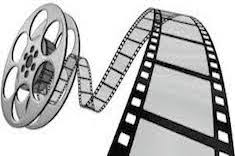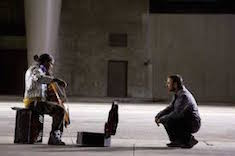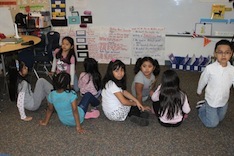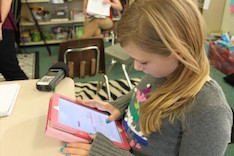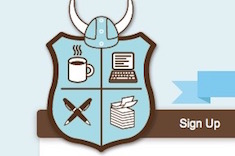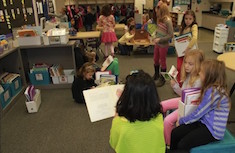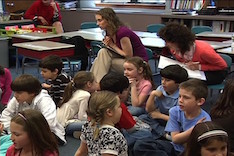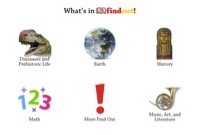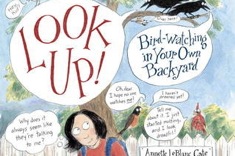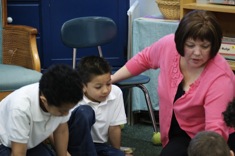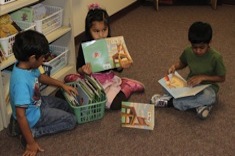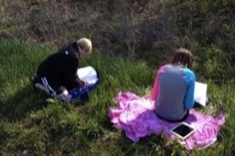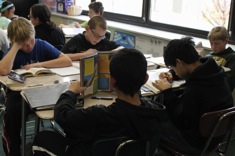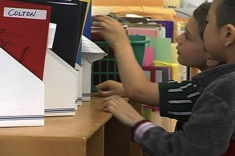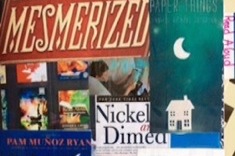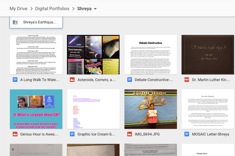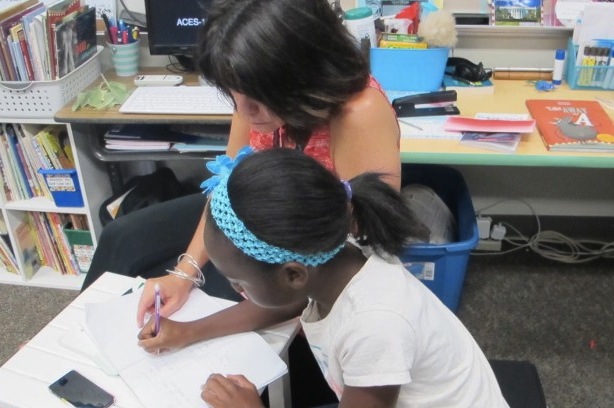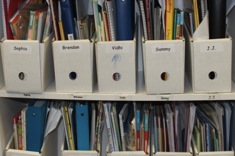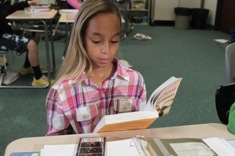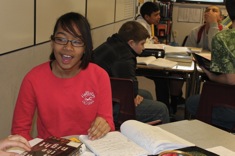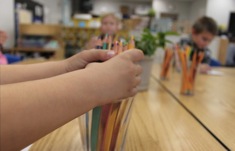Articles
Here is where you’ll find all the latest print features from our contributors. If you’d like to browse specifically by grade level, topic, or contributor, you can use the links in the right sidebar.
Latest Content
Close Encounters with Text: Reading Many Ways
Jan Burkins and Kim Yaris find their reading processes as adults informs the way they view close reading with students.
“Are We Gonna Watch the Movie?”
Gretchen Schroeder finds her high school students are always eager to see the movies related to the novels they are reading in class. Yet it rarely makes sense to show the entire film. She explains how to choose clips judiciously.
Embracing Standards in Creative Ways
Christy Rush-Levine makes links between standards, video clips, and close reading.
Core Memories and Gotcha Moments
Jennifer Schwanke explains why pop quizzes can be damaging to students by using a pop culture reference.
Mid-Workshop Conversations
Stella Villalba finds mid-workshop conversations are a terrific routine to add to literacy workshops to promote growth, especially for English language learners.
Technology Is Not a Reward
Bill Bass explains why teachers who are still using technology as a reward are far behind their colleagues in integrating computers and applications into workshops.
NaNoWriMo with Students
National Novel Writing Month (NaNoWriMo) is coming up in November, and it’s a wonderful opportunity for sustained writing and linking students with writers across the web. Katherine Sokolowski shares how it works, as well as tips for getting started.
Figuring Out Social Media Together
Ruth Ayres finds storytelling is at the heart of social media, and describes how teachers and students might work together to find a place for social media in classrooms.
Unstable Labels: Stop the Race to Z
Jan Burkins and Kim Yaris consider the insignificance of what levels convey about young readers.
Little Levels, Big Thinking
Katie DiCesare moves beyond levels to consider her first-grade readers’ needs.
Reading, Engagement, and Kidwatching
Katrina Edwards looked around her first-grade reading workshop one day in winter and it wasn’t a pretty picture. Many students were doing anything but reading. She develops a plan to approach the issue of time on task thoughtfully.
Reorganizing Primary Information Texts
Katie DiCesare thinks about the needs of her first-grade students, and spends some time reorganizing primary information texts, considering both physical texts for the library and online resources.
Nonfiction Books with More Than One Entry Point
Franki Sibberson shares some of her favorite nonfiction books with more than one entry point.
Nonfiction Scrapbooks
Justin Stygles finds Nonfiction Scrapbooks are a fun way for his fifth-grade students to explore their reading interests and artistic talents with the classroom community.
Grouping Strategies for Guided Reading
How can you support the “outliers” in classrooms — students with unique needs or profiles who don’t neatly fit into any instructional group? Shari Frost offers some strategies.
Embracing Meaning Making in Guided Reading Groups
Katie DiCesare finds her guided reading practices are rusty, so she develops some new strategies to improve her work.
A Fiction Writing Field Trip
Katherine Sokolowski’s students love writing fiction, but their skills don’t match their enthusiasm. A field trip helps bridge that gap.
Beyond Explicit Instruction: What Do Struggling Readers Need?
Franki Sibberson explores the varied needs of young readers and writers.
Like Teacher, Like Student: Finding Emotional Support in Schools
Andie Cunningham and one of her kindergarten students share something in common at the start of the school year — tears as they struggle to find their place in a new community.
My Journey with Marcos: Autism and English Language Learners
Stella Villalba finds she needs new strategies for assisting a young autistic English language learner.
Using Reading Notebook Covers for Reflection and Goal Setting
Clare Landrigan and Tammy Mulligan are using reading notebook covers in ingenious ways.
Getting Started with Digital Portfolios
Megan Skogstad shares advice launching digital portfolios.
Data That Matters
What information is gathered by a teacher sitting in a rocking chair quietly watching her students? Christy Rush-Levine discovers it is plenty.
Launching Student Data Binders
Megan Skogstad shares lots of practical advice for creating and sustaining student data binders.
Staying True to Best Practices with Required Resources
Are you required to use a reading or writing program that goes against your beliefs about teaching and learning? Gigi McAllister has suggestions for holding onto your beliefs and sanity.
A Booklist for Grandparents Day
Sarah Klim presents a booklist for Grandparents Day, with many suggestions for read alouds to promote the September event.
Just Reading?
Christy Rush-Levine challenges the notion that there is anything easy or natural about getting young teens to select and read books independently in classrooms.
Speed Dating Books
Carly Ullmer presents a fun activity for introducing teens to new books and each other as readers, capitalizing on their interests.
Why I Stopped Asking, “Where’s Your Pencil?”
Ruth Ayres finds the brain research is grim when it comes to the needs of neglected children, but there is still much that teachers can do to support healthy growth in students from challenging home environments.
What Difference Does Difference Make?
Mary Lee Hahn begins the year with honest and open discussions with her fifth-grade students about diversity.
Browse Content By
Type
Category
- Assessment Tools
- Big Fresh Archives
- Booklists
- Choice Numeracy
- Classroom Design
- Common Core
- Community Building
- Conferring
- Content Literacy
- Digital Literacy
- English Language Learners
- Equity
- Family Relations
- Free Samples
- Guiding Groups
- Leadership
- Literacy Coaches
- Mentor Texts
- Minilessons
- New Teacher Mentors
- Podcasts
- Poetry
- Quote Collections
- Reading Strategies
- Self Care
- Struggling and Striving Learners
- Talking and Listening
- Teacher Study Groups
- Teaching Reading
- Teaching Writing
- Word Study and Vocabulary
Author
- Melissa Quimby
- Nawal Qarooni
- Gwen Blumberg
- Julie Cox
- The Lead Learners
- Hannah Tills
- Josie Stewart
- Ruth Metcalfe
- Mallory Messenger
- Becca Burk
- Jodie Bailey
- Vivian Chen
- Mary Brower
- Tiffany Abbott Fuller
- Stephanie Affinito
- Ruth Ayres
- Leigh Anne Eck
- Heather Fisher
- Shari Frost
- Julie Johnson
- Suzy Kaback
- Gigi McAllister
- Shirl McPhillips
- Melanie Meehan
- Cathy Mere
- Debbie Miller
- Tara Barnett and Kate Mills
- Tammy Mulligan
- Dana Murphy
- Bitsy Parks
- David Pittman
- Brenda Power
- Heather Rader
- Matt Renwick
- Mandy Robek
- Christy Rush-Levine
- Gretchen Schroeder
- Jen Schwanke
- Brian Sepe
- Katherine Sokolowski
- Stella Villalba
- Jennifer Vincent
Grade Level
Choice Literacy Membership
Articles
Get full access to all Choice Literacy article content
Videos
Get full access to all Choice Literacy video content
Courses
Access Choice Literacy course curriculum and training


